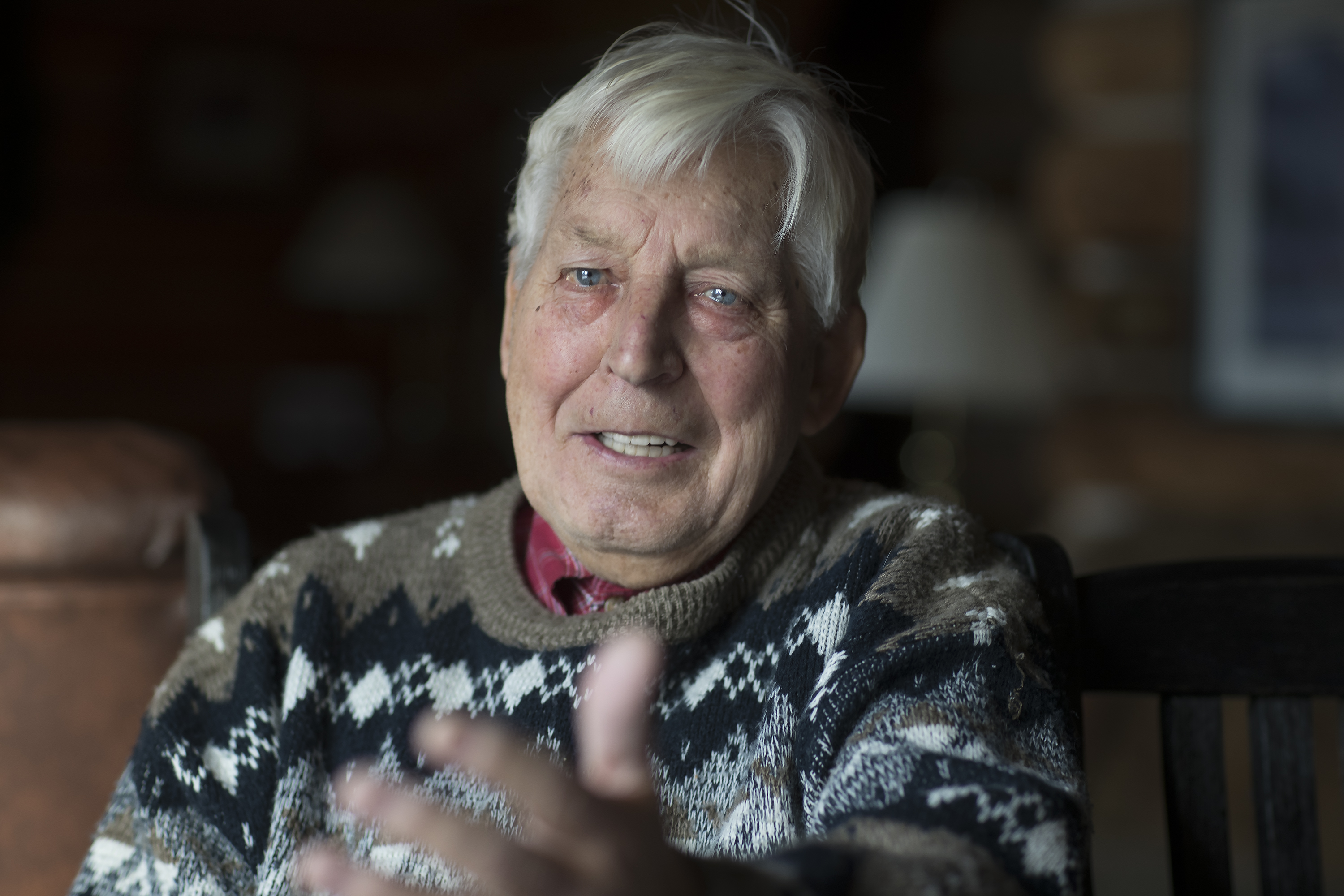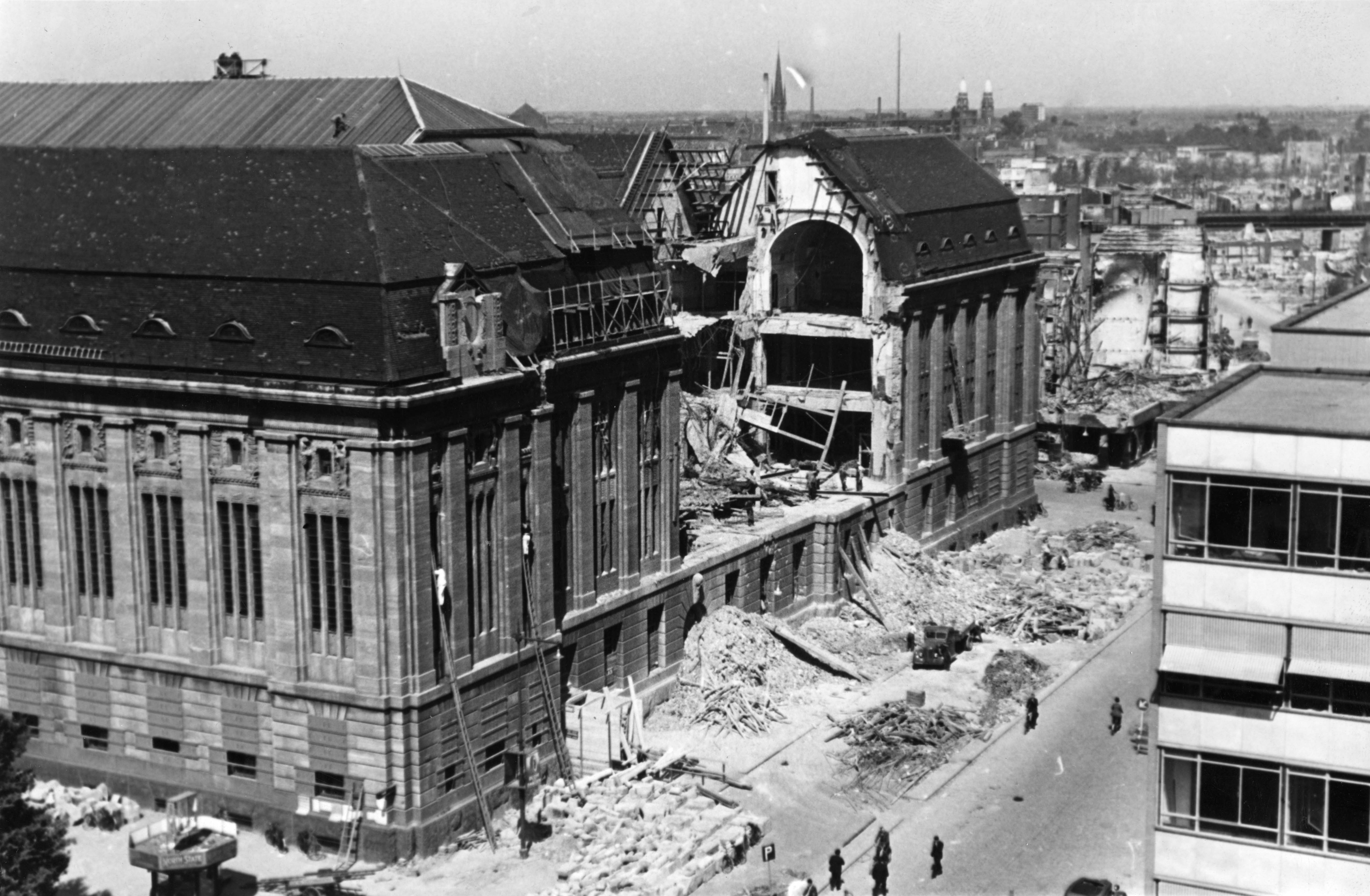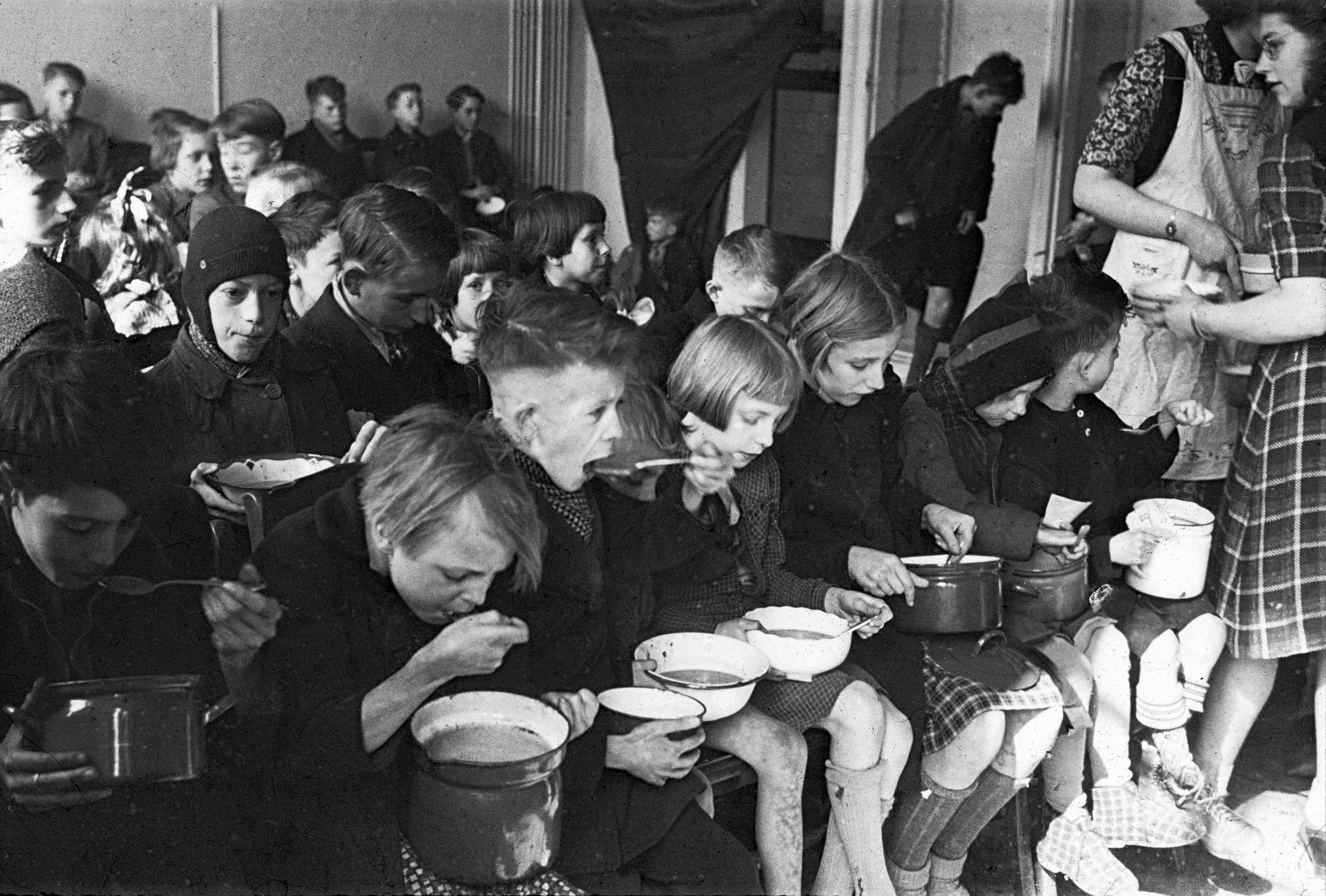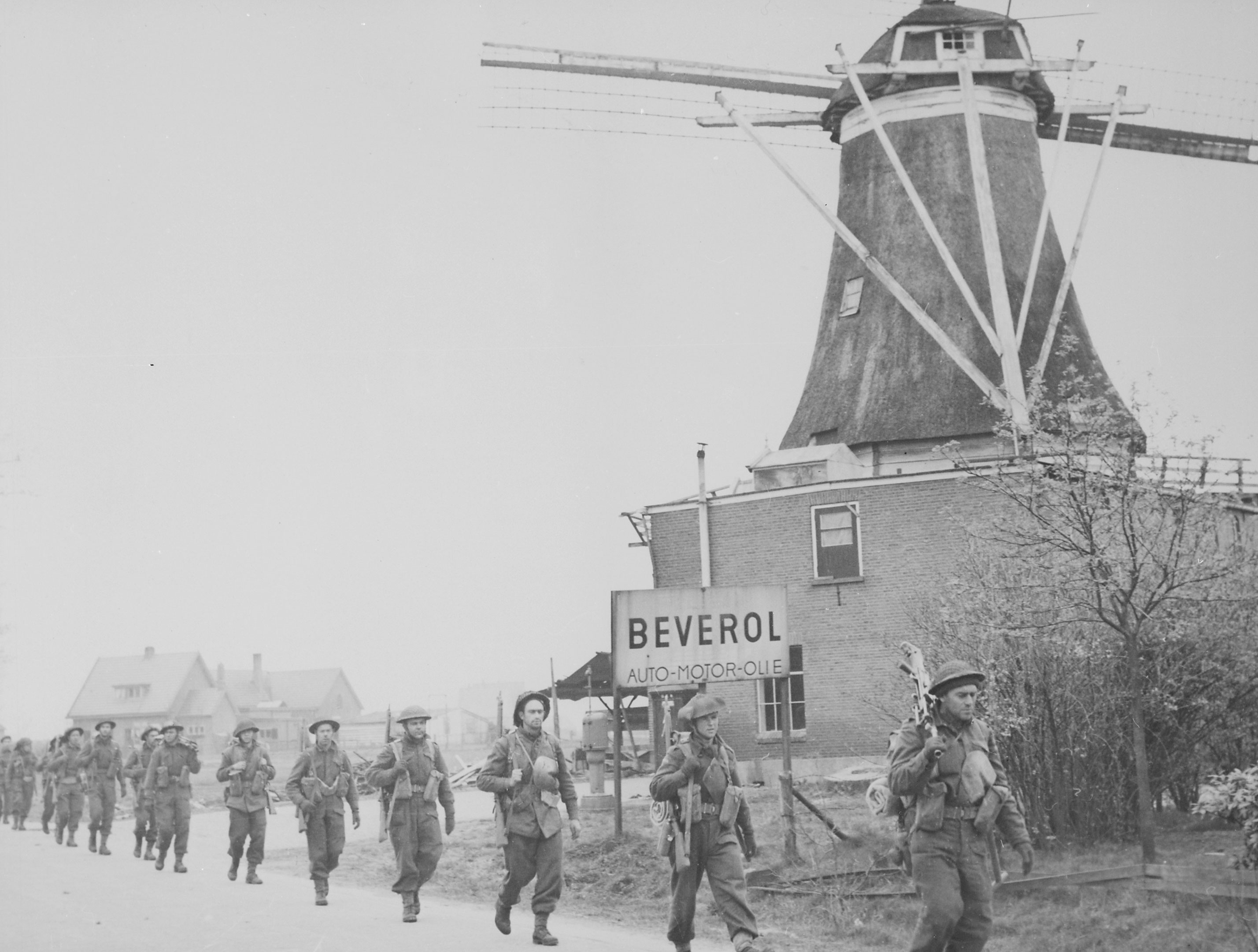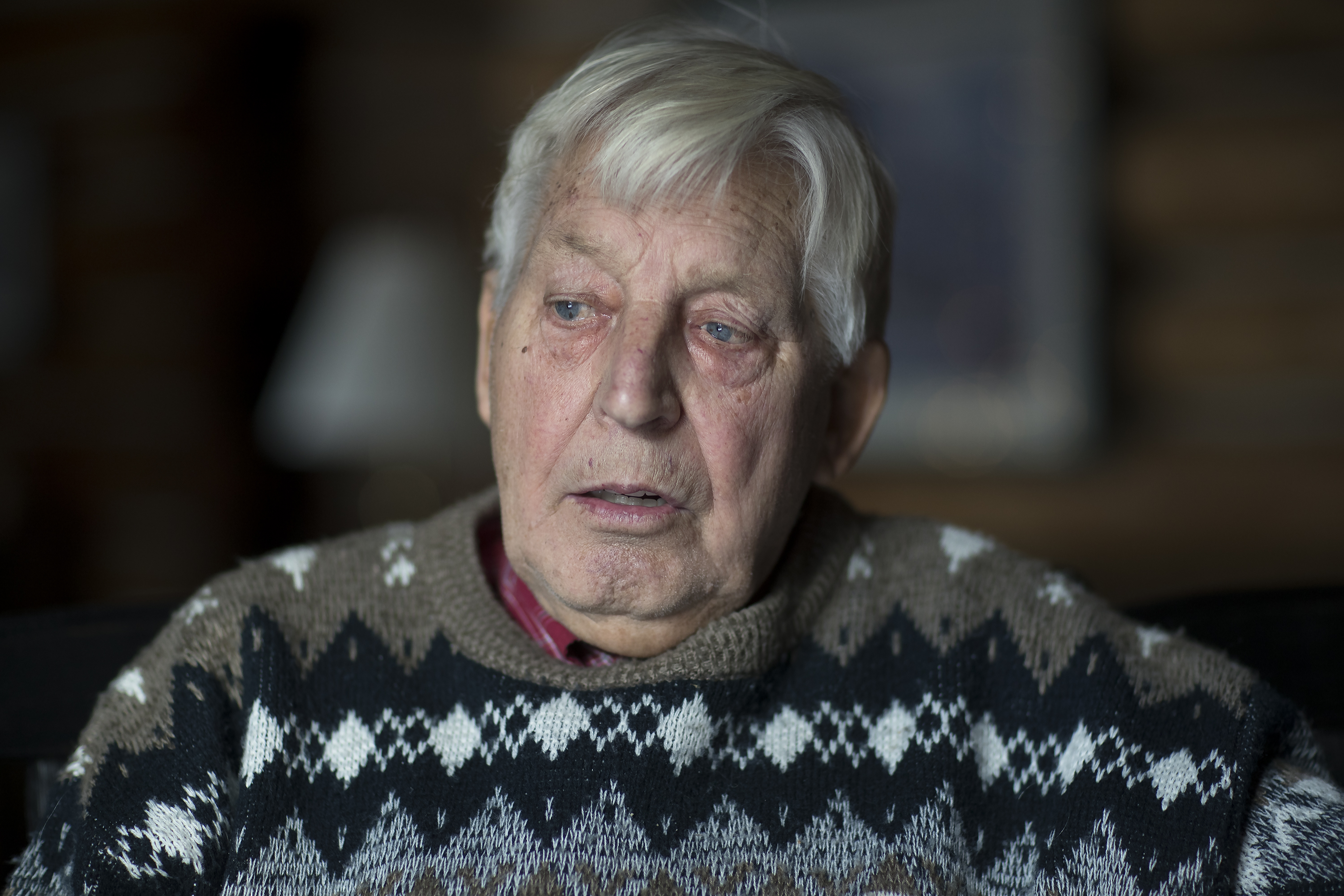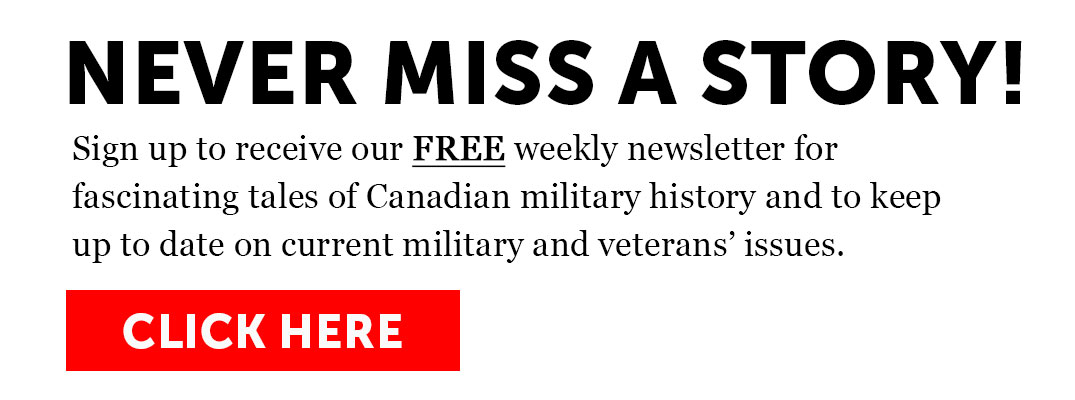This is the second of two stories on Ernie Verhulst’s childhood in occupied Holland. To read part one, published on Jan. 23 click here.
A wide-eyed boy when the occupation of the Netherlands started, Ernie Verhulst had witnessed widespread atrocities, death and destruction. The sound of streams of Allied bombers passing overhead on their way to targets in Germany—Americans by day; British and Canadians by night—had become so commonplace he rarely bothered to look up anymore.By the fourth year of Germany’s occupation, the Dutch youth’s Jewish neighbours had been hustled off to concentration camps, suspected resistance members had been shot, suicide victims floated down the Maas River and in this, the “Hunger Winter” of 1944, 20,000 Dutch would die of starvation.
Indeed, Verhulst’s memories of those years from age 8 to 13 are vivid. Over the course of a lengthy interview near his home outside Turner Valley, Alta., and in subsequent telephone chats, he laughed, shed a tear or two, and relived his young life under the Nazi occupation of 1940-45. Here are some of his stories:
Life under occupationThe Netherlands had barely fallen in May 1940 when the Wehrmacht resumed its relentless march to France. “They had all the paraphernalia—portable kitchens and all that. But the Germans had only soup and dark bread; that’s what they were eating.”
Soon after setting up shop, the occupiers ordered residents to surrender their radios. Verhulst’s English-speaking father refused and hid his homebuilt one, with its protruding tubes and dials, in the back of a cabinet behind the living room plants.
They listened to the newscasts from BBC London each day at noon, his father translating.
A neighbour, a policeman, was doing the same thing. He got caught, lost his job and was sent to Germany where he served six months in a prison camp. When he returned, he got a job as a security guard at the local brewery.
“The Germans kept that brewery going because they liked beer,” said Verhulst. “And he was always able to smuggle some food home with him from there later on in the war when things got really bad. So his family always had something to eat.
“It was the best thing that ever happened to him.”

Later, Verhulst’s father Max, a maritime shipping agent, heard the Germans were conducting house-to-house searches and scanning neighbourhoods for radios. They were just a few doors away when he quickly dismantled his and scattered the pieces around hiding places in the cellar. He never brought it out again, but he didn’t stop listening to the BBC. He translated news broadcasts for the underground newspaper.
Word leaked to the Germans that a neighbour worked for the same paper. Troops turned his house upside down looking for evidence. They left without discovering that his jacket, hanging on a kitchen chair, was filled with copies of the latest issue.
“Every house was searched,” said Verhulst. “There was this German with his rifle opening the door where my brother and I were playing. And if looks could have killed him, we would have killed him. You know, kids don’t hold back their feelings.
“They checked the papers of my mom and my dad. They took every man out from 18 to 40. My dad was 41, and they left him alone.” Qualified men were shipped off to Germany for service. Resistance members were summarily executed.
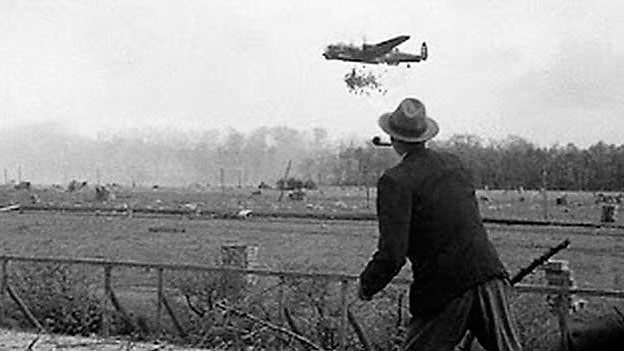
A Lancaster flies low over the Rotterdam drop zone during Operation Manna in April 1945.
After the Germans left that day, Verhulst’s father went to check on his brother.
“So he made it there and he finds out, ya, his brother was taken to Germany. He comes walking back and he passes a side street and the German there starts shooting at him. I was in the house, and I knew it had to be my dad he was shooting at. That was the time I was really scared – man, was I scared for my dad. Four or five shots.
“Dad comes running into the house, out of breath. I’m pounding him on the chest: ‘Why’d you have to go out? They could’ve killed you! He was shooting at you!’ He says: ‘This German was a poor shot.’”
Verhulst was surrounded by tragedy. A couple moved in around the corner with a new baby—given to them, he learned after the war, by her Jewish parents before they were herded into boxcars and hauled off to a concentration camp, never to be heard from again. Another Jewish family survived the occupation hidden behind the organ in a Rotterdam church.
Occupation troops forced Jewish-owned businesses to close. Stars of David were all around Verhulst at first, then they began to disappear. First full-blooded Jews were targeted, then people who were determined to have traces of Jewish blood, including a boy he played with regularly.
“My mother lost her best friend in 1940 or ’41. She talked to my mother when she was told she had to come in to their office. She knew that was the end of her. She actually said farewell to my mother.”
Verhulst recalled the late-1944 assassination of a collaborator and his Nazi handler by Dutch resistance fighters. The Germans subsequently rounded up 20 Dutch citizens at random and executed them by firing squad three blocks from his house.
“I was lying in my bed and I heard it all,” he said.
Desperation
The Dutch were without gas or electricity for much of the occupation. Trees disappeared, an idle construction site was stripped clean—“you saw a whole building come down in half an hour”—and German telephone poles fell as people collected firewood. Two Dutch carrying one of the poles home were shot dead.
Fearing they would be cut off, a German anti-aircraft unit posted near Verhulst moved upstream during the Allies’ foiled attempt to open a quick route through Holland into Germany in September 1944. The British-led operation was known as Market Garden. By the time the AA crew returned 18 hours later, locals had stripped half their barracks of wood and many of the troops had to take to tents.
The food situation steadily deteriorated in the Netherlands. The Germans took what they wanted and left little for the Dutch.
“Gradually, everything was rationed and then you couldn’t get very much at any time, really. The farmers were not able to sell their goods; they were all taken by the Germans and they only had enough to keep for their own family.”
His father often worked at home and, because the shipping company was essentially demobilized, they eventually sent him to work at an affiliate fertilizer company.
One day, the owner summoned the staff to the window and pointed to his huge inventory of fertilizer, telling them he was going to trade it to area farmers for food, which he would in turn give to them.
“He traded the whole stockpile of the company to feed his employees.”
By the winter of 1944-45, the situation in parts of Holland was beyond desperate.
“There was practically no food anymore,” he said. “It was hard to know how people survived. It was especially hard on old people. There were suicides. Some hanged themselves. We found an old lady floating in the canal—she had drowned herself. There was that kind of desperation going on.”
The Canadians brokered food drops in April 1945 in what was dubbed Operation Manna.
In the first of them, Verhulst remembers Lancasters coming in at rooftop level on a Sunday afternoon. The planes headed for the airport—all but one. Verhulst watched as a Lancaster broke from the formation, circled and dropped food canisters into neighbourhoods near his home. B-17s followed. He said German soldiers later went door to door, searching homes and taking the rations for themselves.
Nevertheless, Verhulst got some. “There were sea biscuits and things like that. The ones I really loved were called ‘meat hash and vegetables.’ They were fantastic.”
Verhulst had heard the gunfire in the late fall of 1944 as Canadian, British and Polish troops battled their way across the Scheldt Estuary, south of Rotterdam toward the key port of Antwerp. The eventual victory opened access to Rotterdam from the south, enabling weapons and supplies to reach the Dutch resistance.
One of the weapons smugglers was caught with guns for the underground. He was summarily shot but survived. Family came and got him and took him to a hospital, where he was on the road to recovery when someone “squealed.” German soldiers arrived and took him out to be shot again.
“On the way out, he thanked the doctors and the nurses for what they had done for him. I met his brother and his wife in Eindhoven after the war, when I was already settled in Canada.”
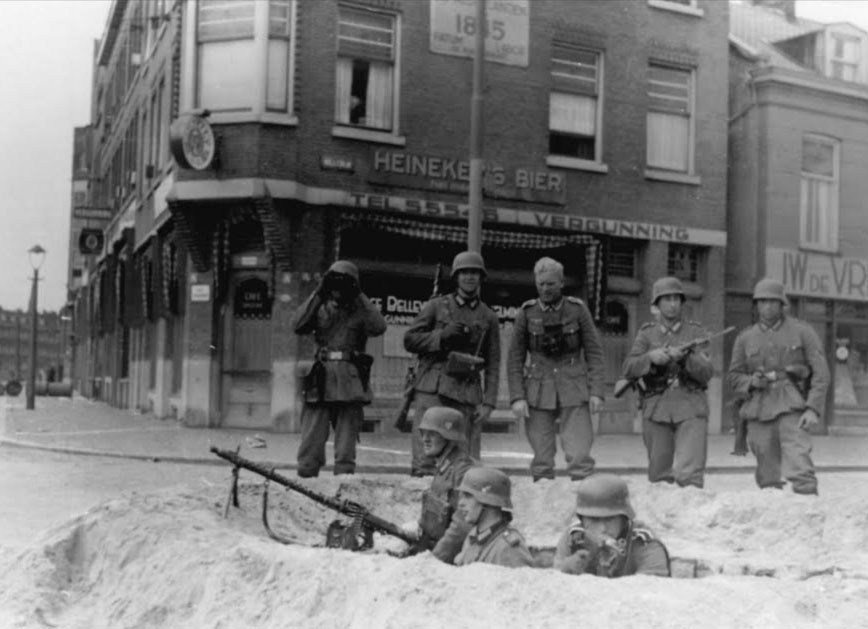
German troops in Rotterdam in 1940. [Historiek-Vantilt]
Verhulst said the Germans weren’t all bad. Early in the occupation, Wehrmacht soldiers would organize races among the kids, giving the winners pieces of bread.
The boys all had slingshots. One Sunday morning, they were leaning on a wall watching the world go by when a German officer walked past. One boy dared the others to shoot him. The youngest, five-year-old Bossie Dammers, was the only one to accept the challenge. By then, the German was 15 metres or more away.
“He hauls out his slingshot and hits him right on his ass, first time. The German went straight up in the air. He turns around in the air and he comes down and he sees this little boy standing there with this big slingshot.

“We were scared something bad was going to happen. He just growled at him and continued on his way.”
After the official surrender in May 1945, German SS troops refused to give up and continued to skirmish with Dutch resistance and regular Wehrmacht, who fought side-by-side. There were firefights within shouting distance of Verhulst’s home.
He saw British, American and Canadian troops as the war ended.
“All of a sudden they were all over the place,” he said. “The trucks came in whole convoys. They set up tents and were based in schools and so on.“Us kids would go up to them and they’d pick up the small kids and take them in and give them something to eat.”
He said the difference between the Germans and the Allies was like night and day, even to the children.
“With the Germans, you didn’t know what to expect. But with the Allies, after five years of occupation, they couldn’t do anything wrong. They were great to us, and we were great to them.
“The Canadians taught us the hokey-pokey. We saw an awful lot of the Canadians. They were unbelievable times.”
After the war, youth gangs fought in the streets for a while. Verhulst figures they were venting their frustrations. It didn’t last. He went camping with the boy scouts; the organization had been banned under Nazi rule.
His father returned to the shipping company, and captains aboard American ships coming into Rotterdam gave him cartons of cigarettes and liquor, even Mars bars—so much it eventually filled his cellar. “We had more than the corner store.”
His father gave it away to friends and relatives.
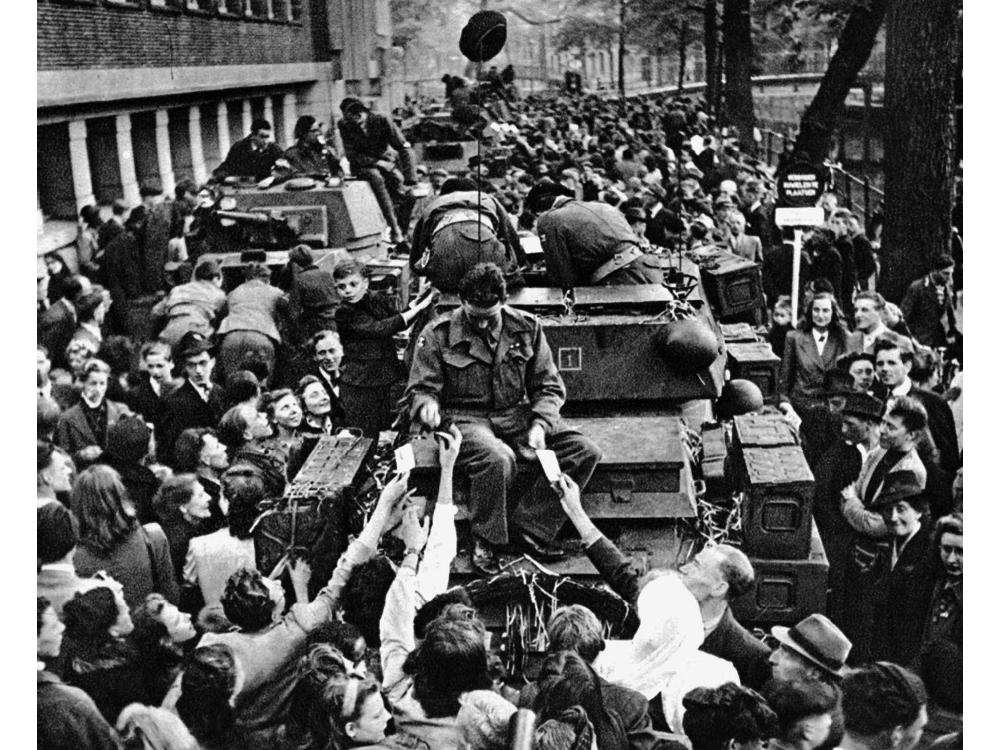
Canadians receive a rapturous welcome from Dutch citizens after liberating their town. [DND]
Verhulst did two years of mandatory service in the Dutch army, where he trained in radar and portable radio communications.
Afterward, he installed, repaired and maintained ships’ radios, then went to work for the Phillips company. A friend decided to move to Canada. Verhulst—married to wife Gretha and with baby Yolanda in tow—followed in 1958.
He ended up in Calgary, at a radio-television shop. He went to night school to learn more about TV.
He became a lead technician for Woodward’s department stores, then a service manager at Philco. When the TV companies began selling out to Japanese firms, Verhulst moved on to a local hospital just as electronic and nuclear medicine took off. He was dispatched on regular trips to the Netherlands to tap into Dutch expertise, bringing the city’s first two cardiac labs back with him.
He retired in 1999.
Verhulst maintains that the war had no lasting effects on him. He still eats potatoes with vigour. He remembers with fondness how he and his family and their neighbours would violate the Germans’ 8 p.m. curfew by sitting out of sight around the hedges in their yards, watching the loud V-1 rockets passing over on their way to Antwerp and Allied tracers filling the sky “like a curtain.”
“When the motorcycle would come around the corner, everybody went inside. When he was gone, we were all back out again. That was our evening entertainment. It was never dull.”
Advertisement









